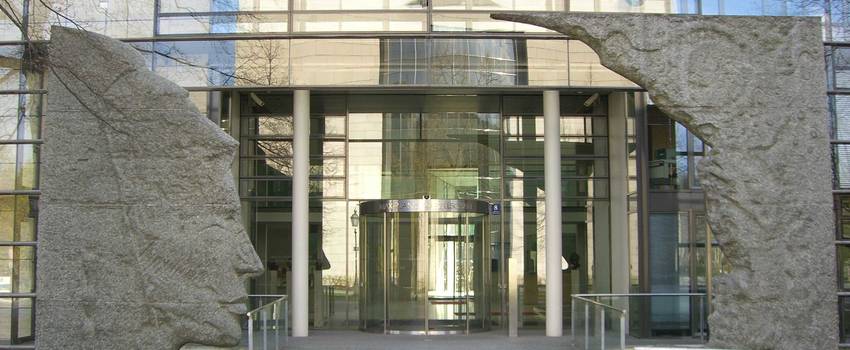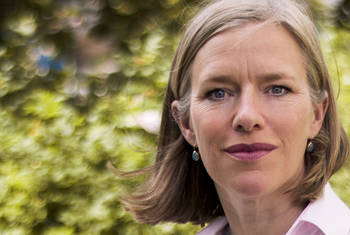Russell Gray Do Kea Birds Have Cooperative Abilities?
Russell Gray is Director of the Max Planck Institute for the Science of Human History in Jena, Germany, as well as Adjunct Professor at the Research School of Social Sciences of the Australian National University in Canberra. His research covers the fields of linguistics, animal cognition, philosophy of biology and the evolution of human and animal behavior. He also pioneered the application of computational evolutionary methods to questions of linguistic prehistory. Russell is a Fellow of the Royal Society of New Zealand and has been awarded their Mason Durie Medal in 2012 “for his pioneering social science research on questions of fundamental relationships between human language, cognition and biology”.
Area of Research
Linguistics, Evolutionary Biology, Animal Cognition, Philosophy of Biology
since 2014
since 2012
Adjunct Professor
Australian National University
Research School of the Social Sciences
1990
PhD in Evolutionary Biology
University of Auckland
- Animal Behaviour
- Cambridge University Press
- Current Anthropology
- Journal of Theoretical Biology
- Molecular Biology & Evolution
- Nature
- Proceedings of the National Academy of Sciences
- Proceedings of the Royal Society B
- Public Library of Science B
- Science
- Trends in Genetics
- Behavioral and Brain Sciences
- Royal Society Marsden Committee
Prizes
- Mason Durie Medal, Royal Society of New Zealand (2012)
- Royal Society Young Scientist Travel Award (1988)
- DBA prize for best student talk at the New Zealand Psychological Society conference (1987)
Fellowships
- All Souls College, Oxford
- Royal Society of New Zealand
- Hood Fellowship, University of Auckland (2006)
- Royal Society James Cook Fellowship (2003)
- University Grants Committee Postgraduate Scholarship (1985)
- Marsden Fund "Tongues, trees and Bayesian inference – towards a global language phylogeny" (2013)
- Marie Curie IIRSES grant (2012)
- Marsden Fund “The genetics of complex cognition” (2012)
- Templeton Fund “Testing the functional roles of religion in human society” (2011)
- Marsden Fund “Cultural evolution of religion” (2011)
- Marsden Fund “Does complex tool manufacture require specific neural and cognitive adaptations?” (2009)
- National Science Fund “Dynamics of Hunter-Gatherer Language Change” (2008)
- Faculty Research Development Fund “The psychological and biological underpinnings of complex cognition” (2008)
- Marsden Fund “Pushing the time barrier in the quest for language roots" (2007)
- Marsden Fund “The evolution of complex cognition: specialists or generalists?” (2005)
- Marsden Fund “Tongues and trees: phylogenetic tests of agricultural dispersals in the Americas” (2004)
- Marsden Fund “Singing in the Trees: Genealogical models of culturally-inherited traits and the population memetics of bird song” (2003)
- Marsden Fund “Tool manufacture, social transmission and cognition: New Caledonian crows as a model system" (2003)
- AURC “The cognitive basis of tool manufacture and use in New Caledonian crows” (2002)
- University of Auckland Emerging Research Activities grant (2001)
- Marsden Fund “A phylogenetic approach to linguistic evolution in Europe and the Pacific" (2001)
- Marsden Fund “Rebuilding ancient genes to study the last universal common ancestor" (2001)
 © Maximilian Dörrbecker
© Maximilian Dörrbecker
Max Planck Society
"The Max Planck Society is Germany's most successful research organization. Since its establishment in 1948, no fewer than 18 Nobel laureates have emerged from the ranks of its scientists, putting it on a par with the best and most prestigious research institutions worldwide. The more than 15,000 publications each year in internationally renowned scientific journals are proof of the outstanding research work conducted at Max Planck Institutes – and many of those articles are among the most-cited publications in the relevant field." (Source)
Institute
Max Planck Institute for the Science of Human History
The Max Planck Institute for the Science of Human History conducts basic research using modern analytical methods with the aim of a multidisciplinary and integrated science of human history. It seeks to bridge the gap between historical disciplines and the natural sciences. Scientists from a range of fields, such as biology, linguistics, archaeology, anthropology and history jointly work on innovative methods, in particular in the fields of cutting-edge genetic and proteomic sequencing, bioinformatics, archaeological science, computational modeling, language databases, and phylogeography. This thoroughly integrated, interdisciplinary approach will address long-standing questions about human history – including some previously deemed difficult, or even completely intractable – as well as novel questions inspired by the new horizons that cutting edge methods open up. (Source)
Map
The ability to cooperate with each other has given humans one of the key advantages in the colonization of this planet. What about other species? Do they have cooperative abilities as well? RUSSELL GRAY and his fellow researchers have investigated this particular question observing keas, a New Zealand bird known for its playfulness and inquisitiveness. The researchers designed three experimental set-ups that tested the birds’ ability and willingness to cooperate with each other as well as the underlying cognition of the process. As Gray explains in this video, the experiments showed that that the keas’ behavior was not just governed by rote learning but that they could adjust their behavior depending on the situation, thus waiting for another bird to solve the situation. These findings suggest that a less anthropocentric look at the nature of relationships within groups is needed in order to understand the evolution of complex cognitive abilities such as collaboration.
LT Video Publication DOI: https://doi.org/10.21036/LTPUB10558
Keas Perform Similarly to Chimpanzees and Elephants when Solving Collaborative Tasks
- Megan Heaney, Russell D. Gray and Alex H. Taylor
- PloS one
- Published in 2017









